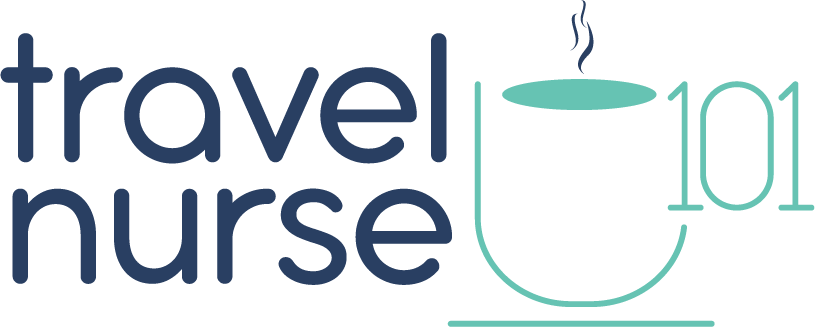Congrats! You’ve signed the dotted line on your travel nurse contract, and you’re ready to secure housing for your gig. Travel nurse housing may seem daunting, but I’m here to help. I’ve been successful with housing as a travel nurse, even as I travel with my two furry companions, which can make logistics a bit more complicated.
I’m proud to say I have many tricks up my sleeve and have been able to point many nurses in the right direction. I am here to give you tips to help you understand your traveler housing options, so you have a safe, comfortable place to lay your head after a long shift.
Pick a Travel Agency That Offers Housing Support
The best advice I can give you is to find an agency with a housing team that has the skills and market knowledge to supply you with the best housing options. As a new traveler, this is something I initially overlooked when picking agencies. I quickly learned the hard way (once again) how beneficial it is to have this support and benefit.
Look over all the housing options your agency offers. They may offer a payment assistance program, a unique option designed to assist you with those costly initial move-in expenses. They might have additional benefits that ease the financial burden of moving, such as help paying deposits and fees and prorated rent. There may also not have to abide by certain restrictions and be able to give you a more comprehensive range of housing options, such as a room for rent, RV park, campground, cabin, and short-term hotel. If you use Travelers Haven, your company may be able to put the housing in their name, which means you can avoid credit checks.
Here’s another perk of having your company secure your housing – if the hospital cancels your contract due to low census, your travel nurse agency will likely help you find a solution to leaving your lodging early. However, be aware that if you leave your travel assignment early on your terms, you could have to repay housing fees that your company encountered on your behalf.
Mentor tip: You will likely need to be cleared to start your assignment before your travel nursing company makes any payments or arrangements for housing on your behalf. Do your due diligence and get through the QA process quickly so your agency can assist you with accommodations and set you up for success.
As a first-time traveler, I cannot recommend having your company help you navigate this process enough. It takes a lot of added stress right off of your plate!
Tips For Finding Your Own Housing
If you want to take housing into your own hands for your assignment, let’s get you set up with the right resources for success.
Stick to a Housing Budget
First and foremost, you need to research the area and write out a budget that includes your travel nurse housing. Ideally, we all want to find reasonable housing with all of the amenities, but you want to be realistic with what you need, what you want, and your budget. Make a list of must-haves, and try to stick to the basics. A safe, clean, furnished place within a reasonable distance of the hospital is a great start.
I recommend doing your due diligence and researching areas you want to stay in and places you want to avoid. You will want to make sure your accommodations are as comfortable as possible. Some travelers like the perks that hotels provide, like breakfast, housekeeping services, and fitness centers. Plus, many hotels offer a corporate, long-term rate – just make sure to ask. Personally, I need to have a private place to take my dogs out to the restroom and for walks, so I try to avoid hotels. However, it is a good option for many other travelers.
Mentor tip: When finding your own housing, get a list of included amenities to know what to pack. I try to find furnished places with a kitchen supplied with pots and pans. I always bring my own bed linens and towels. Also, a lesson I learned the hard way was getting to housing that did not have an air conditioner. Being a Texas native, I assumed everyone had air conditioning, but it is relatively common for many mountain townhomes not to have AC. In that case, you might want to bring a fan! Also, be sure you understand what utilities are included in your rent payment and whether or not you have parking or a garage.
Get Housing Referrals
I have had the best luck finding housing through referrals. Use your network of co-workers, friends, and peers to your advantage. I go to the travel nurse housing groups on Facebook and see who others have used for traveler housing. (If you would like me to add you to these groups, please send me a direct message on Facebook.) I will search and make a post in these groups. Within that post, I communicate my needs, dates, and budget. I will also request to join local Facebook groups, such as buy, sell, trade, or rental groups specific to that town.
I’ll also search through Airbnb, VRBO, Furnished Finders, and Craigslist for housing. Pay very close attention to offers that seem too good to be true because, unfortunately, they usually are. You want to avoid being scammed, so never send money until you do all your homework. Ask the landlord for references and ask them to do a FaceTime call to show you the property. If that is not an option, consider finding a friend or fellow traveler in the area to scope out the housing for you. Many travel nurses will even stay in a hotel for a couple of weeks once they get to their assignment to look at housing options in person and get a better feel for the area.
When you find a place you want to stay, ask for a short-term contract lease that includes your rental dates, deposit info and whether or not it is refundable, monthly rental rates, and what utilities and amenities are included. You can even ask for a month-to-month lease. A condition form should be included so that if there is any previous damage, you can point it out on this form and not be blamed for it later. Securing this contract protects both parties, but please know that you will likely still be responsible for paying the rent owed within the lease term if your contract is canceled early. If necessary, seek legal advice before signing the contract. I am a nurse, not a lawyer, and would never want to steer you wrong. You can always ask for a month-to-month lease.
Housing as a travel nurse is often one of the biggest pain points of the career. You have many options for your accommodations during each assignment, and each comes with benefits and risks. Be upfront about your housing concerns with your company and recruiter so they can assist you. Do your due diligence in the planning stages, read property reviews, research your new city, and ask questions. Happy travels!
Do you have travel nurse housing tips or recommendations? Share them in the comments below.


